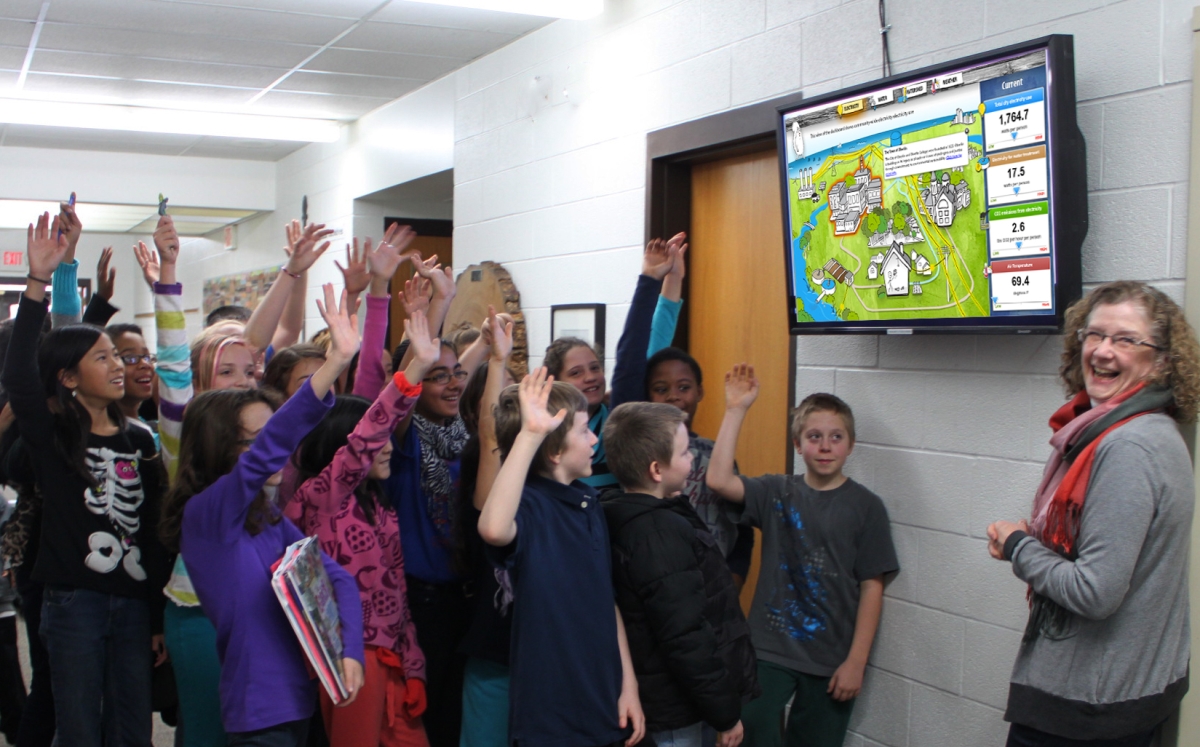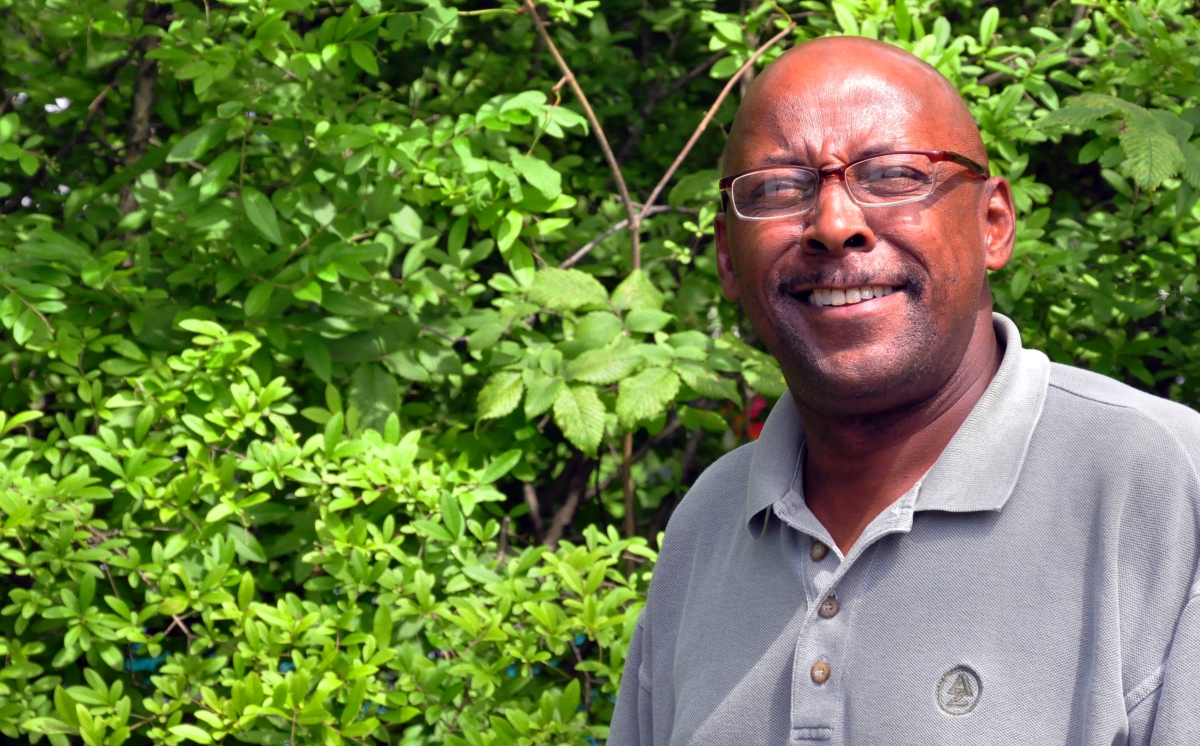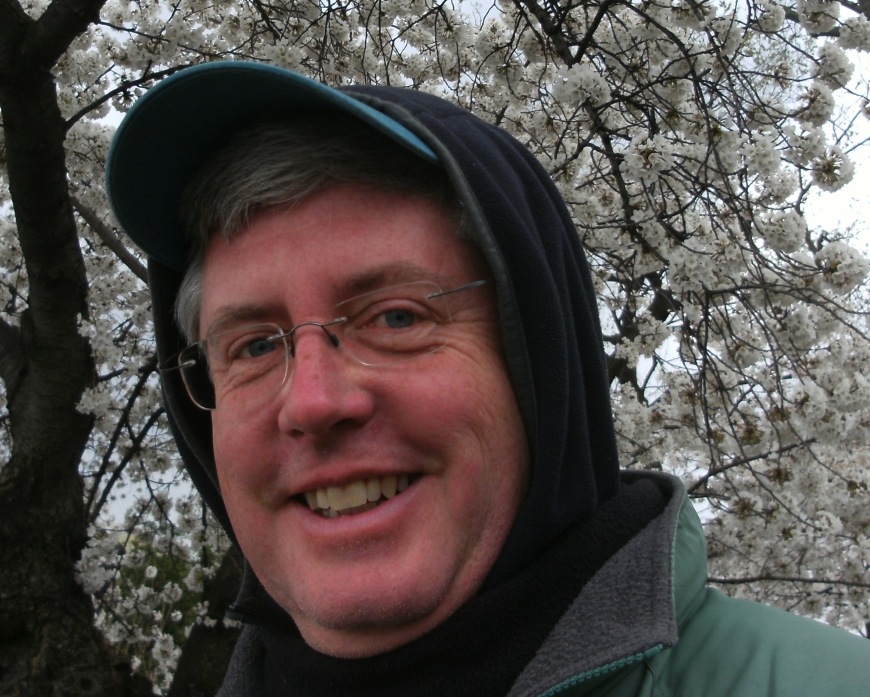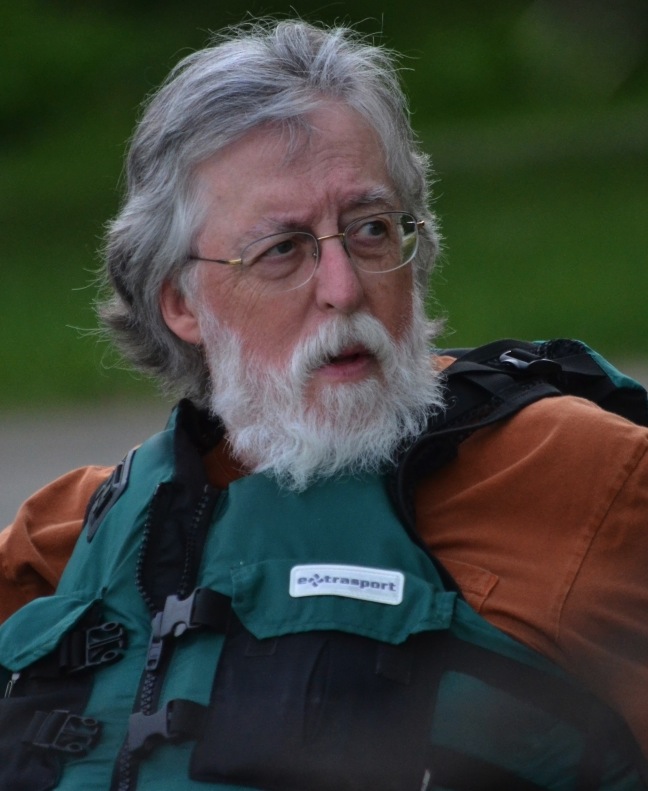 Kim Koos is a teacher and IB Coordinator at Prospect Elementary School. Aside from her passion for education, she loves spending time with her family, swimming, reading, and gardening. She is also very artistic and loves to create items in various mediums.
Kim Koos is a teacher and IB Coordinator at Prospect Elementary School. Aside from her passion for education, she loves spending time with her family, swimming, reading, and gardening. She is also very artistic and loves to create items in various mediums.
Q: What are some words that come to mind when you think of Oberlin?
A: The thing that appealed to me most about Oberlin when I came here was that I felt welcomed. It has that small-town feeling, but there are people who are progressive and want to move forward as well – it’s not a typical small-town community…at all. You never know what’s going to be around any corner, it’s never boring. And I think it would be really easy in a college town to get wrapped up with all the hoopla and growth and big-city thinking, but my favorite part of the “town-and-gown” is the amount of college volunteers.
Q: How would you define the word “sustainability” as it relates to Oberlin?
A: When I think of sustainability, I think of being caregivers of our earth, of our planet, our home. In the broadest sense of the word, we are given this space and we’re all on borrowed time. If we want this space to be ours for our children and our grandchildren down the road, we need to do the right things and make the right choices that will allow us continue to have resources and the things we enjoy now for those generations to come.
Q: How do you try to move forward with sustainability as a teacher?
A: Well, we do a lot of small things, you know - the kids are in charge of taking the recycling out. The kids actually one year wrote a letter to the school board because they wanted some changes made in the cafeteria. They were very interested in the school making choices that were environmentally friendly and it was empowering for them to write that letter and get a response. We use more environmentally friendly cleaning products, recycled toilet paper...and we talk about those things with the kids.
Q: And what do you do in your personal life to move towards sustainability?
A: We’ve done a lot of things around the house, installed a rain barrel to help with the garden, installed rain chains at the gutters, and replaced our old light bulbs and appliances. We’re also careful about choosing eco-friendly pains and cleaning products in our home. We donate a lot of things to Goodwill. And I have an herb garden that saves me some money from buying herbs. I’ve been replacing any annual plants in the garden with perennials- they’re like a present every year- they just keep growing up bigger and I can split them up and give them to friends.
Q: Is there anything that you’d like to tell the rest of the Oberlin Community about sustainability?
A: Well, my first thought goes to Prospect because that’s where I spend a lot of my time. And there have been so many people in the community who have been so thoughtful with their recycling. Sometimes when offices close, they’ll bring over tons of stuff-office supplies – pens, pencils, labels. We’ve gotten national geographic, maps, Chinese and Japanese artifacts that someone weeded out of their own collection. So now we have those things that kids would otherwise never have the hands-on ability to experience those things.
Q: Can you talk about your interaction with the Environmental Dashboard?
A: Every visitor we’ve had all come in and ask “what’s that?” – They all want to know about it, and they’re very jealous because they also see the possibilities of what we can do with it. And when you talk about 21st century skills, these are the things that kids need to know how to understand. As they can gather data from it, record data and interpret data, that will be a very important tool.
]]> Gregory Jones is Oberlin’s Energy Advocate, part of POWER’s initiative to help homeowners improve their energy efficiency. In his free time, Greg enjoys fishing and is a self-proclaimed ‘sports nut.’ Cleveland teams, all the way.
Gregory Jones is Oberlin’s Energy Advocate, part of POWER’s initiative to help homeowners improve their energy efficiency. In his free time, Greg enjoys fishing and is a self-proclaimed ‘sports nut.’ Cleveland teams, all the way.
What are some words or images that come to mind when you think of Oberlin?
Oh, when I think of Oberlin, I think of a close-knit eco-friendly community, right off the bat. They’re energy conscious, but not just energy conscious- they’re eco-conscious. And that’s one of the reasons why I love working here. Also, maybe from the outside looking in, I can appreciate that strong community aspect. You can have the privilege of knowing your neighbors and knowing the neighborhood kids. This community offers you a lot of diversity, freedom, and a good interaction between the youth and the seniors.
So how did you come to work in Oberlin as the POWER Energy Advocate?
I bugged the heck out of them. As soon as I heard that this position was being thought about and created, I let everyone know that they could get no one better to do the job and that’s what I told them and that’s how it came to be. This was a perfect fit for me.
And what’s it been like getting to know the Oberlin community through this job?
It’s been a pleasure, it’s been a real pleasure, it’s been everything I envisioned, and more, and it continues to evolve. As POWER expands, it expands in areas that I wanted to expand in my own business and my own growth - in energy efficiency and water efficiency, carbon neutrality - all these are things that I’ve studied and wanted to be involved in. Oberlin presents me that opportunity. So it’s not just a job, 9-5, I kind of live it and breathe it.
Can you explain what you do as an Energy Advocate?
As an energy advocate I do a first-step walkthrough of a home. I visually go through a residence and find inadequacies in insulation levels and poorly functioning heating and cooling equiptment. We look for different ways to be more efficient in the home through light bulbs, low-flow water fixtures and aerators on sinks. Then I match the homeowner up with existing programs that can help make the adjustments to that individual’s home at no, or very low, cost to them. And that’s another something that’s unique to Oberlin- no one else in the county has an Energy Advocate, and maybe there’s only a few of us in the country, to tell you the truth. So it makes Oberlin unique in having someone to focus on that, for their residents. And it’s really for the whole community’s use.
Have you experienced any mistrust or hesitancy from Oberlin residents about receiving walk-throughs?
Well, first of all, there’s always a certain amount of mistrust when an unfamiliar man comes to the door. I think my life experiences has made me more comfortable watering down that initial animosity, with a smile, with a hello. So, with that in mind, there’s really been, here, no barriers, no apprehension. and it’s BECAUSE of this community. Even the ones who aren’t into energy efficiency, or sustainability, you cannot help but know about it in this community because thats what this community revolves around. So, me saying I’m POWER, or energy efficiency, or sustainability, it’s not as foreign as it might be in another area.
Is there anything that everyone in Oberlin could do to right-off-the-bat improve their home’s energy efficiency?
Caulk and Air Sealing. Every house in Oberlin could use caulking, air sealing, and insulation. If every house in Oberlin did that, it would make a SIGNIFICANT difference. And thats something YOU can do. Get a tube of caulk and don’t be afraid to get your hands dirty. Insulation is another thing you can do on your own. But, I mean, the easiest way to do ALL of that here in Oberlin, is to call me, and then have the professionals come out and do it for little or no cost- that’s the whole point of the program. It’s that easy, but the problem is getting people to call.
People use the word “Sustainability” to mean a lot of things, what does it mean to you?
It runs the same gamut as ecoefficiency, those are the new buzzwords for the eco-friendly bunch. But sustainability is just to be able to maintain something however you want it to be.
And how do you feel you contribute to sustainability in your personal life?
Doing what I’m doing with POWER, trying to sustain a energy-efficient portfolio for the entire community, which is what I beleive the entire idea is with POWER. I can envision other cities starting to operate their own grid power, like here in Oberlin, so that more communities become sustainable in their own right. I think that’s the ideal picture of where we want to go as people in this country.
In this kind of community, it could be really easy to think that everything is okay. Around you, all hell is breaking loose, but you don’t see it because you’re good right here. But things have to change, you cannot just stay. If you don’t change, you become a dinosaur, and dinosaurs get extinct. Earth renews itself, just like we have the power to renew ourselves. Anytime we’ve faced a challenge that’s this monumental, we’ve come up with a solution. So it’s not beyond us to create what we need to create, it’s just having cooperation and understanding from all parties involved to say “this is what we need to do,” and get it done.
What do you think about the Environmental Dashboard as a tool for promoting resource awareness?
I think it’s a great tool, I think it should be expanded more. I think it should be put up at both ways coming into Oberlin. I mean it, you come into Oberlin, you see Environmental Dashboard, you know what we’re about. That in itself is going to bring some people with that mindset here, and when you have like minds in a like place, you make great things happen.
]]> Chuck Annable was the President/Horticulturist at Green Side Up Garden Center. He recently sold it to his employees. He is an avid traveler and has visited 49 of the 50 United States. He loves to hike, canoe, and explore natural areas.
Chuck Annable was the President/Horticulturist at Green Side Up Garden Center. He recently sold it to his employees. He is an avid traveler and has visited 49 of the 50 United States. He loves to hike, canoe, and explore natural areas.
Q: How did you come to own Green Side Up Garden Center?
A: Well I was born in Oberlin, so I’m a long-time resident. I studied horticulture and environmental studies in college. I did that for about 12 years, then we had kids and I bought the video store downtown- did that for about 13 years, now I’m back in horticulture. The business was started by the Locke family in 1946. When the second generation was ready to retire, they decided to find someone to take it on. I was happy to do that until I realized how much work it was and my wife retired encouraging me to join her. We added The Green Side Up part and kept the Locke’s name out of respect. So far it is still called Locke’s Green Side Up.
Q: When you think about Oberlin, what words or images come to mind?
A: I love and hate Oberlin as a businessperson. It’s comfortable for me, so I guess “home”- it’s home. It’s interesting to think about Oberlin when you’re away and what you miss about it. For instance, this morning I had coffee in Slow Train and I saw maybe a dozen people that I could have had conversations with. It is an interesting and pleasant place to live and raise children.
Q: People have been using the word “sustainability” more and more to mean anything from political, social or environmental well-being- what’s your personal definition of “sustainability?”
A: Well, see I have issues with it. Because I was born into a family of outdoors people and that term did not exist when I was a kid- the term we used was “conservation.” And that meant to love, appreciate, and use nature wisely, so that’s basically what I think “sustainability” is. I’m glad people are coming around to it, I came to a point in my life where I needed to make a living, and I found a way to do that through a green business. There’s the extreme “earth first” point of view, but then you have to figure out how you are going to live in the world and make a living. People look at me and think, “oh, he’s a businessman.” but I’ve always tried to be a businessman in a green sort of way. I think what I do is really sustainable; I’ve never been extravagant. And on an individual basis, I think we helped a lot of people in this town to become better gardeners.
Q: So you’ve been talking about what makes Green Side Up conservation-oriented…is there anything that you do in your personal life to support the Oberlin community?
A: I’ve been on a lot of boards of nonprofits here in Oberlin, just trying to help people do things that are good for the community. I’ve been on the Oberlin History Center board, the Oberlin Community Improvement Corporation, The Bill Long Foundation and Workshop Players boards for example. We’re pretty involved in the school system with theater and band boosters.
Q: Why do you think it’s so important to be involved in those ways?
A: Well, I mean, we just live here, and we’re involved whether we want to be or not. I can’t say I do it for any altruistic reason- it’s just because we’re here and that’s what we do.
Q: Is there anything you would like to tell people in Oberlin about sustainability?
A: I just wish that everyone would take care of their selves first - If everyone could do the best they can for their situation. I think people need to look in the mirror and just do everything they personally can first and decide about how they’re going to use cars and resources and stuff like that. There needs to be an understanding of how to encourage nature, and allow nature, and do more personally to make a healthy environment. Green Side Up is here as a resource, and I wish more people would take advantage of the resources available in Oberlin. So I’m just trying to enjoy our natural environments, kind of quietly. I don’t really have an axe to grind, teaching people about nature…I just sort of want them to find their own reason to come to it, enjoy it, protect it, and conserve it.
]]>
John Memmott is a semi-retired teacher who spent many years in the Oberlin public schools. He’s also a long-time sea-kayaker and avid photographer. Recently, he’s gotten involved with getting the Environmental Dashboard system set up in Prospect Elementary.
Q: What words or images would you use to describe Oberlin?
A: Well it’s all historical really. It’s the college, it’s the underground railroad, it’s that kind of thing that comes to mind.
Q: How did you come to live and work in Oberlin?
A: When I graduated from Antioch College, Oberlin schools were expanding staff, and it was one of the few places that actually had a program that matched my philosophy. They had an inquiry-related curriculum in the Elementary, mostly teaching around themes and projects. Plus, the community was just the kind of community I liked; not a big city, not a real small town. So that’s why I came, and once I got here, that’s it. Here to stay.
Q: Can you give me sort of your definition of sustainability as it relates to Oberlin?
A: I just look at sustainability as using our resources efficiently. You know, not being wasteful. Because in my mind, resources are always limited, and that’s what I’ve always tried to communicate to the kids, is that we shouldn’t be wasteful. It harms the environment, it harms our life-style--our living conditions. It doesn’t make sense, so that’s my feeling about sustainability.
Q: So what are you doing in your life that is moving Oberlin towards more sustainability?
A: Just being very conscious of how I use resources. Trying to make sure my home is efficient. And I try to make sure that my family does the same. The students I work with, I let them know that I don’t appreciate it if they’re wasteful with paper or with any other materials.
Q: Can you talk a little bit more about your involvement with the Environmental Dashboard and why and how you got pulled into that?
A: Mostly I got involved because I had a connection with the teachers in Prospect. And I had been involved with the Oberlin Project a bit too. I feel that advocating environmental issues is always a good thing, and also because selfishly, it got me back into Prospect. It allowed me to reaffirm the connections I have with the teachers.
Q: And what do you think about the Environmental Dashboard as an educational tool?
A: Well, I think the primary thing I’m really excited about is the messaging aspect - getting kids’ work up there and their responses and their photos on the board. Because I know that’s how you get buy-in from the kids. If the kids know what they’re producing in the classrooms are likely going to show up on a board, they’re going to get excited; they’re going to be more willing to be involved in the whole project.
Q: What is something that you would say to Oberlin community members about engaging in the community?
A: Well, it’s just about people becoming aware, and I think the Oberlin Project’s main emphasis is getting that awareness out. And I think their look at it is the more people you get to come in and attend meetings--to even be introduced to the idea, the more those things will happen.
]]>